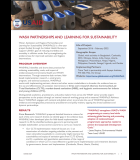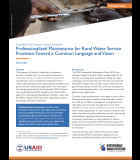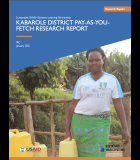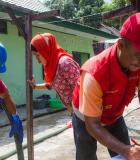Resiliency Through Wealth, Agriculture, and Nutrition in Karamoja (RWANU)
The Resiliency through Wealth, Agriculture, and Nutrition (RWANU) project is designed to reduce food insecurity among vulnerable people in South Karamoja, Uganda. RWANU means “future” in NgaKarimojong. This five-year, Development Food Aid Program is funded by USAID’s Office of Food for Peace and targets 16 subcounties in the districts of Amudat, Moroto, Napak, and Nakapiripirit.
Activity Description
Activity Description
- Interventions tailored based on whether beneficiaries live in the agricultural green belt, agropastoralist, or pastoralist livelihood zones
- Increasing livestock ownership and management among women’s groups
- Building the capacity of farmer groups and small producer organizations through training in technical skills, savings mobilization, basic business skills, and marketing
- Prevent malnutrition during the first 1,000 days of life through a package of curative and preventative health care, behavior change activities, improved consumption of micro- and macronutrients, and conditional food rations for pregnant and lactating women and children under two
- Promote a variety of nutrition and health messages in partnership with the Ugandan Ministry of Health and community based structures such as health centers, village health teams, outreach services, and mother care groups
- Promote gender equity by including both men and women in project activities, facilitating women’s participation without overburdening them, and ensuring that both men and women engage in remunerative production for the market
- Apply a climate-smart approach to program implementation through supporting existing regional early warning systems and introducing innovative natural resource management technologies
Expected Outcomes
Expected Outcomes
- Improve access to food for men and women
- Reduce malnutrition in pregnant and lactating women and children under five
Actual Outcomes
Actual Outcomes
- By the end of December 2015, the Maternal Care Groups had been trained on three of the four lessons, including Hand Washing, Safe Disposal of Feces, and Safe Water Transport and Storage. All 49 Health Promoters (HP) and 14 Health Educators (HE) were trained on the material and subsequently all 342 active MCGs were reached on the messages, with an attendance of 3,239 (93%) Lead Mothers (LM)





